The Australian Broadcasting Corporation (ABC) is the national broadcaster of Australia. It is principally funded by direct grants from the Australian Government and is administered by a government-appointed board. The ABC is a publicly owned body that is politically independent and accountable such as through its production of annual reports and is bound by provisions contained within the Public Interest Disclosure Act 2013 and the Public Governance, Performance and Accountability Act 2013, with its charter enshrined in legislation, the Australian Broadcasting Corporation Act 1983. ABC Commercial, a profit-making division of the corporation, also helps to generate funding for content provision.
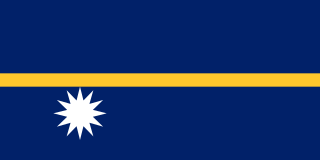
Nauru, officially the Republic of Nauru and formerly known as Pleasant Island, is an island country and microstate in Micronesia, part of Oceania in the Central Pacific. Its nearest neighbour is Banaba of Kiribati, about 300 km (190 mi) to the east.

The politics of Nauru take place in a framework of a parliamentary representative democratic republic, whereby the President of Nauru is the head of government of the executive branch. Legislative power is vested in both the government and the parliament. The Judiciary is independent of the executive and the legislature.
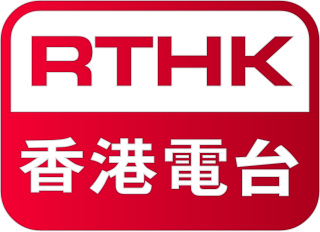
Radio Television Hong Kong (RTHK) is the public broadcasting service in Hong Kong. GOW, the predecessor to RTHK, was established in 1928 as the first broadcasting service in Hong Kong. As a government department under the Commerce and Economic Development Bureau of the Hong Kong Government that directly supported by annual government funding, RTHK's educational, entertainment, and public affairs programmes are broadcast on its eight radio channels and five television channels, as well as commercial television channels.

Australian immigration detention facilities comprise a number of different facilities throughout Australia, including the Australian territory of Christmas Island. Such facilities also exist in Papua New Guinea and Nauru, namely the Nauru Regional Processing Centre and the Manus Regional Processing Centre.

The Nauru Regional Processing Centre is an offshore Australian immigration detention facility in use from 2001 to 2008, from 2012 to 2019, and from September 2021. It is located on the South Pacific island nation of Nauru and run by the Government of Nauru. The use of immigration detention facilities is part of a policy of mandatory detention in Australia.
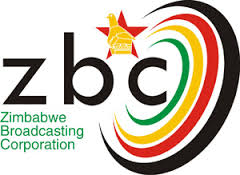
The Zimbabwe Broadcasting Corporation (ZBC) is the state-owned broadcaster in Zimbabwe. It was established as the Rhodesian Broadcasting Corporation (RBC), taking its current name in 1980. Like the RBC before it, the ZBC has been accused of being a government mouthpiece with no editorial independence.
The mass media in Armenia refers to mass media outlets based in Armenia. Television, magazines, and newspapers are all operated by both state-owned and for-profit corporations which depend on advertising, subscription, and other sales-related revenues. Armenia's press freedoms improved considerably following the 2018 Velvet Revolution.
The mass media in Cyprus refers to mass media outlets based on the island of Cyprus, including both the Republic of Cyprus (RoC) and the Turkish Republic of Northern Cyprus (TRNC). Television, magazines, and newspapers are all operated by both state-owned and for-profit corporations which depend on advertising, subscription, and other sales-related revenues.
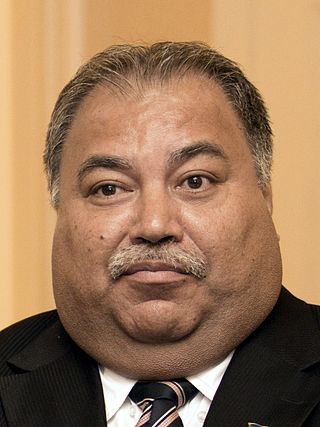
Baron Divavesi Waqa is a Nauruan politician who was President of Nauru from 11 June 2013 until 27 August 2019. He previously served as Minister of Education from 2004 to 2007.
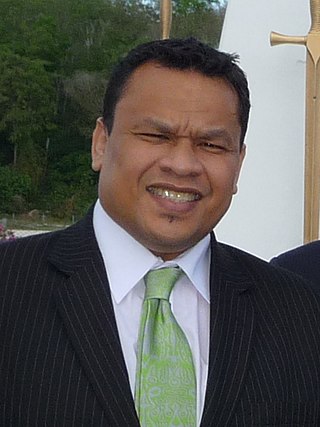
Sprent Arumogo Dabwido was a Nauruan politician who served as President of Nauru between 2011 and 2013, and was also a weightlifter. The son of a parliamentarian, Dabwido was originally elected to the Meneng Constituency in the Parliament of Nauru at the 2004 elections. Having served as Minister for Telecommunications in Marcus Stephen's government from 2009, Dabwido joined the Nauruan opposition faction in November 2011 after Stephen's resignation, and, having passed a motion of no confidence against interim president Freddie Pitcher, was elected president four days later. In his role as president, Dabwido functioned as chairman of the Cabinet of Nauru, and held various portfolios in the Nauruan government.
Topics related to Nauru include:
Nauru Television (NTV), established on 31 May 1991, is the government-owned, non-commercial sole television company in the Republic of Nauru. It is operated by the Nauru Broadcasting Service and overseen by the Nauru Media Bureau.
Kiribati is a developing island nation consisting in 32 atolls and one raised coral island (Banaba) scattered over some 3.5 million square kilometres in the central Pacific. There is access to national media throughout the country.
The Republic of Vanuatu is an officially trilingual state in the western Pacific, the three national languages being English, French and Bislama. There is a diversity of newspapers, but only one, state-owned television channel. Private radio stations are a recent development; there were reportedly none in 2007.
Asylum in Australia has been granted to many refugees since 1945, when half a million Europeans displaced by World War II were given asylum. Since then, there have been periodic waves of asylum seekers from South East Asia and the Middle East, with government policy and public opinion changing over the years.

Visitors to Nauru must obtain a visa unless they come from one of the countries eligible for free visa on arrival. All visitors must hold a passport valid for 3 months. Transit visas are not required if the connecting flight leaves within three hours of arrival in Nauru. Business visitors must have a local sponsor.
In January 2014, Nauru's President Baron Waqa fired the country's only magistrate Peter Law, and cancelled the visa of its Chief Justice Geoffrey Eames. Law was fired after issuing an injunction to temporarily halt the deportation of three foreign nationals. Eames issued an injunction in an unsuccessful attempt to temporarily halt Law's deportation. Eames was in Australia at the time and his visa was cancelled, preventing his return to Nauru.
TV, magazines, and newspapers are all operated by both state-owned and for-profit corporations which depend on advertising, subscription, and other sales-related revenues.
Events in the year 2018 in Nauru.








